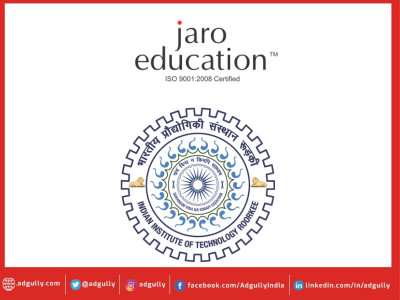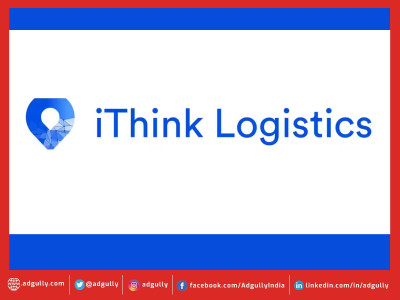Experts highlight the ground realities of achieving DigitALL for gender equality
‘DigitALL: Innovation and technology for gender equality’ has been chosen for International Women’s Day, celebrated on March 8, 2023. The United Nations and UN Women celebrated this day to recognise the women and girls who are championing the advancement of transformative technology and digital education. The observance also aims to explore the impact of the digital gender gap on widening economic and social inequalities, and it will spotlight the importance of protecting the rights of women and girls in digital spaces and addressing online and ICT-facilitated gender-based violence.
Among the fundamental objectives are advancing technical innovation, education, and the empowerment of women and girls. Including women and other underrepresented groups in technology leads to more innovative solutions and has a better potential to advance gender equality. Achieving the UN’s 2030 Sustainable Development Goals and addressing humanitarian and development concerns are both made possible by advances in digital technology.
However, the ground realities are far from encouraging. According to a research published by the European Union, only 17% of persons working in technology disciplines, specifically ICT, are women. Even worse, the same study found that these women made 20% less pay than their male colleagues. Looking at recent developments over the previous few years, it appears that not much progress has been accomplished despite the efforts made in elementary schools, high schools, and universities. Women are still deterred from pursuing higher education by invisible barriers and glass ceilings.
Speaking to Adgully, Zaiba Sarang, Co-founder, iThink Logistics, pointed out, “The logistics industry in India is facing a significant challenge in terms of low female representation. According to a Gartner report in 2021, only 41% of the workforce in the supply chain in India comprises women. The number of women at the executive level has also fallen from 17% in 2020 to 15% in 2021, indicating a worrying trend. Observing the numbers, it becomes apparent that the increase in supply chain efficiency is largely due to technological advancements. One such example is the Warehousing Management System (WMS), which has had a profound impact on the logistics industry.”
Sarang further added, “One of the benefits of WMS is its ability to keep clear track of inventory. This has not only led to better optimization of operations but has also resulted in a reduction of time spent on manual tasks. As a result, more women are being drawn to the logistics industry, as WMS makes it easier for them to keep track of inventory and streamline their work. Data analytics is also an important tool in a DigitALL approach, as it can help to identify and address gender bias and other inequalities in the workplace. By leveraging data analytics, logistics companies can create more equitable working environments and foster greater collaboration and creativity among their employees. Overall, a DigitALL approach is key to unlocking the full potential of the logistics sector and creating a more sustainable and equitable future. By embracing digital technology and promoting diversity and inclusion, we can create a more innovative, efficient, and inclusive logistics industry that benefits everyone.”
Ashima Kakar, Head - Marketing, NLB Services, noted, “International Women’s Day is a golden moment for all of us to embrace and celebrate the efforts of women across the globe. Whether it is a century-old invention or modern-day technological advancement, the contribution of women has always helped us progress a step further. However, as we move to the next phase of digital transformation, we still see gender inequality, from the underrepresentation of women in STEM to the immense pay gaps.”
This year, the UN’s theme for International Women's Day, DigitALL: Innovation and technology for gender equality, rightly celebrates the contribution of women in technological advancement while highlighting the need for gender equality in the digital world of technology and innovation. “Through this theme, we can bring forward this rather pressing issue of the digital gender gap to open a door of equal opportunity for women all across the globe. Let’s not forget women’s involvement in innovation and technology is the first step toward growth,” Kakar added.
Ranjita Raman, CEO, Jaro Education, said, “As we observe International Women’s Day with the theme ‘DigitALL: Innovation and technology for gender equality’, we recognise the potential of technology to close the gender gap and provide new tools and solutions to overcome existing challenges and barriers. In the ‘new normal’ of pursuing online learning or remote work, digitalisation can support women in various ways, including enhancing employment prospects and accessing knowledge and information. However, closing the digital gender gap and ensuring equal access to these opportunities is imperative. We can accomplish this by investing in training and development programs for all employees, including mentorship and sponsorship initiatives that promote equal career advancement and leadership development.”
Raman informed that Jaro Education is supporting women’s career growth through its programs and initiatives. “We envision a future where everyone feels valued, supported, and empowered to succeed, and we are committed to building this future together. Let's seize the potential of innovation and technology to promote gender equality and drive positive change,” she added.
Jayati Singh, Chief Marketing Officer, Tally Solutions, noted, “Women in leadership positions have reached their levels breaking the barriers and overcoming challenges that we all know of and speak of in various forum. While their growth is a function of their own performance, capability, resilience, support from all networks, including personal and at work, it’s also from upskilling themselves through various available means and modes through technology and digital which prove to play a significant role in shaping them through their journey.”
Overall, technology and digitisation can be powerful tools for gender equality and also building a strong image of self.
Upasna Dash, CEO and Founder, Jajabor Brand Consultancy, observed, “In recent years, technology has become a catalyst for social change, providing a platform for individuals to share their thoughts, ideas, and opinions without any form of discrimination. Its accessibility to the masses has helped to dissolve gender inequality by allowing women to leverage their skills and abilities on an equal playing field. As the leader of a consultancy firm that aims to bring the core messaging of each organisation to the forefront, I am a firm believer in the potential of technology to empower individuals to put their best foot forward. With the help of technology, we can amplify the voices of those who have been historically marginalized, making it easier for them to showcase their talents and ideas on a global scale. Technology has the power to level the playing field and create a more equitable society for all individuals, regardless of gender or any other form of discrimination.”
According to Ashwini Walawalkar, Country Head, Technique Control Facility Management, for an organisation to maximise its potential, it is essential that leaders embrace diversity. Technology and innovation can be deployed to create an inclusive environment that fosters trust, leadership, and encourages each individual to reach their fullest potential. By recognising the strength that comes from embracing differences, organisations can attain unparalleled levels of success. Women are making great strides in breaking barriers and challenging traditional expectations in male-dominated industries such as facility management. With technology and innovation playing a key role, organisations are now able to boost their growth potential by becoming more accessible to their employees. Additionally, through the empowerment of women, organisations can work towards achieving gender equality and debunking stereotypes. In doing so, organisations will be able to create and nurture an environment of progress and growth.”
Archana Gulia, CCO, ODN said, Technology is the great leveller in our society, and it does not distinguish between genders. In India, technology has the power to create new opportunities for women and girls, who have historically been excluded from the formal workforce. By providing access to digital technologies and training, women can gain valuable skills and knowledge, enabling them to participate more fully in the economy and society.
One area where technology has shown promise in promoting gender equality is through entrepreneurship and innovation. In recent years, there has been a significant increase in the number of women-led startups in India, facilitated by the growth of digital platforms and the government's push to promote entrepreneurship. Through these ventures, women are not only creating employment opportunities for themselves but also contributing to the overall economic growth of the country.
Moreover, technology can also be leveraged to improve access to healthcare and education for womenand girls. With the widespread adoption of mobile phones, there has been a significant increase in the use of mobile health and education services in India. These services provide women with access to critical information and resources that can improve their health and wellbeing.
However, despite the potential of technology to promote gender equality, there are still significant challenges that need to be addressed. One of the biggest challenges is the digital divide, with women in rural areas having limited access to technology and digital services. Additionally, there are concerns around the safety and privacy of women online, with the internet often being used as a tool for harassment and abuse.
















Share
Facebook
YouTube
Tweet
Twitter
LinkedIn